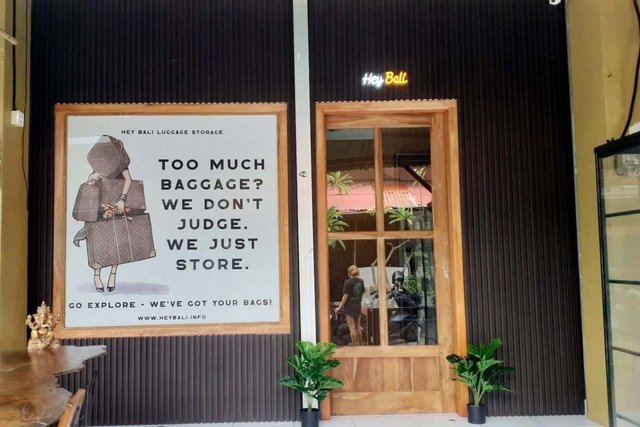Hey Bali Offers Voluntary Solutions to Address Tourist Luggage Issues
The influx of tourist arrivals to Bali shows a consistent upward trend. Data from the Bali Province Central Statistics Agency (BPS) shows that international tourist arrivals reached 6.33 million people throughout 2024.
This figure represents a 20.1 percent increase compared to 2023 and has even surpassed pre-pandemic levels. This positive trend continues this year, with 4 million foreign tourists and 5.8 million domestic tourists visiting the Island of the Gods by July 2025.
This surge in arrivals, on the one hand, stimulates the local economy. However, on the other hand, it demands adequate tourism support services.
One common issue is managing tourists' luggage. This ranges from guests arriving early before hotel check-in times to cases of lost or left-behind items after returning home.
This classic problem sparked a local initiative to find a solution. Since 2023, Hey Bali, a business under PT Hey Timur Indonesia, has been addressing some of these needs.
Based at Jalan Kubu Anyar No. 88x, Kuta, Badung, Hey Bali provides luggage storage services for tourists who want to travel without the burden of luggage. Furthermore, the business also actively assists with the handling and return of lost items.
To date, thousands of tourists have benefited from this service. According to Hey Bali founder Giostanovlatto, this initiative stemmed from observing the practical difficulties travelers face.
"We see many tourists arriving with large suitcases but wanting to travel straight away. Some have even returned home and realized they left their belongings behind. So, we thought, 'Why not help?'" he said.
What sets this service apart is its voluntary and non-commercial nature. Hey Bali doesn't charge storage or retrieval fees; travelers are only asked to cover shipping costs if items need to be shipped overseas.
Giostanovlatto cites the Tri Hita Karana philosophy—the Balinese concept of balance in the relationship between humans, nature, and God—as the foundation of their initiative. "With Tri Hita Karana, we want to maintain balance. Helping travelers find their belongings is our small way of contributing to Bali's hospitality," he said.
This kind of service provides a sense of security and enhances the traveler experience. They can more freely explore their destination without worrying about carrying luggage, and they also know they have a "safety net" in case something goes missing.
With foreign tourist arrivals projected to reach 6.5 million by the end of 2025, the role of community-based support services and local businesses is considered increasingly crucial. The presence of Hey Bali demonstrates how the participation of local businesses can directly contribute to strengthening Bali's image as a responsive and solution-oriented destination.
"Our goal is simple: tourists can return home with a positive experience. If they return with a smile, that's our satisfaction," said Giostanovlatto.


